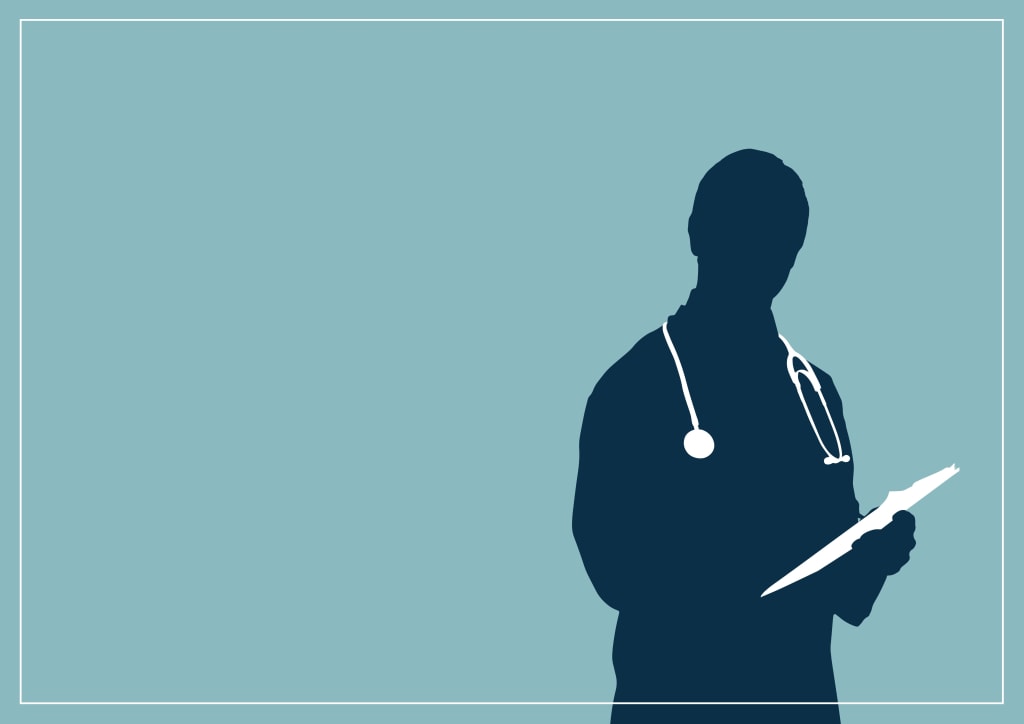Lawsuit Driven Decision Making
Data Driven Decision Making's Evil Twin is Slowly Wrecking the Medical Profession

For the past nine months or so, my wife and I have been trying to conceive a child. It has been difficult for a number of reasons that would require an entirely different article to describe in detail. For purposes of this piece suffice to say because of our circumstances we have had to interact with medical professionals (obstetricians-gynecologists primarily but others as well) on a number of occasions. On two of those occassions highly consequential and difficult decisions with respect to course of treatment needed to be make. And when I say highly consequential I am not exaggerating, for my wife these decisions could mean literally life or death and/or the ability to ever conceive of a child naturally again.
I do not intend to provide the gory details of either situation or the specifics of the decisions to be made for several reasons. Not only were they painful, they were private and personal. However, mostly they are not required because it is obvious, at least to me, that describing them in generic terms is more than sufficient to make my point. The fact that this is the case is more than a little disturbing and makes me even more worried about the curent state of the medical profession. In the interests of brevity I will only present the second situation here though the themes are very similar.
The best way I can illustrate is with a thought experiment. Imagine you are presented with a difficult pregnancy related medical decision with only two choices. The outcome of your decision is of the highest consequence (life or death). Let's call the options choice A and choice B. You are presented with a large amount of data. The data is reputable and robust and comes from multiple sources and was obtained using various technologies and includes measurements of all the most important parameters that need to be known in order to make the correct decision. Choice A is essentially to do nothing, continue to monitor the various parameters you can closely, but essentially let nature take its course, and assume the best. The downside of choice A is that if you are wrong you could die. Choice B is the most radical option, immediate emergency surgery. The upside of choice B is that if successful you can be sure that you will not die. The downsides however are real and include possible lifelong loss of fertility, and/or any of the other unintended consequences that can happen when undergoing surgery, e.g. infection, surgical mistake or failure, etc. Ninety-nine percent of the data you have says Choice A is the correct choice. However, there is one data point which disagrees. There is however a highly plausible theoretical explanation for why that particular data point does not agree with all the other data. The question I ask you to ask yourself is, given all of that, what choice would you make? More specifically if you were a doctor in that situation which choice would you recommend to your patient?
Surprisingly and shockingly to me, in this exact situation, at least one doctor recommended Choice B. When pressed to justify that recommendation the doctor in question began their response with the words "It is my feeling that..." As you might imagine everything after that was a complete mess of highly implausible scenarios and conditions which the data clearly did not support. (Pro-tip - when a doctor or scientist begins a statement that include the word "feeling(s)" you should question what comes next very, very closely. Science is not about feelings, neither is medicine, it is about facts and the appropriate interpretation of them. Gut feelings can play a role in correct decision making even in science and medicine, but they should be as a last resort and only in support of extensive existing data, not as a justification in an of themselves.) The truly sad thing about this is that for 98% of people in this same situation there would be no questioning of the doctors decision. They would simply say OK, you're the doctor and you know best, so surgery it is, and that would be the end of it. The only reason we were able to object is because both myself and my wife are up to date on the latest scientific literature in the area, and are practicing research scientists. My wife also has a fairly significant amount of medical training. Between the two of us I have little doubt we know as much, if not more, than most of our doctors with respect to all aspects (outside of the practical actual experientially based aspects) of our particular situation. I do not discount the critical importance of that part of knowledge, but it cannot trump reams of data that say otherwise except in extraordinary circumstances. This situation was not one of those.
The question then becomes why exactly did this doctor suggest choice B, in the face of all the evidence which clearly indicated choice A was the correct decision. Moreover, even after we raised the objections described above, they continued to push for choice B. To make matters even worse, the doctor in question was apparently offended by our questioning of their decision and took it as a personal attack against their professional judgement. It certainly was not intended as such an attack, but quite frankly this doctors personal judgement was very poor in this case, and even more frankly, the data was so clear that professional judgement was not required. Ultimately I think the main reason the doctor suggested choice B was because it was the one option for which the doctor would not later be questioned (aka later be sued) as to why they "did nothing" and the patient died, when they could have opted for immediate surgery and saved them. The offense they took at being questioned was way out of proportion given the situation and our positions as doctor/patient. It felt like how people often overreact when they are questioned about a decision they have made that they know deep down inside is wrong, but that, they feel in order to save face or whatever, they have to defend strongly anyway. It was a decision made out of fear and as I have written about before, any decision born of fear is a bad decision. This particular case is yet another example of that. Lawsuit driven decision making is fear based decision making and therefore it will always, and I mean always, result in a bad outcome. The "badness" of the outcome may not be evident in the short or even medium term, but it will eventually reveal itself. This is one of the most evil aspects of fear, the way it hides in plain site, moving through time, passing from generation to generation rarely recognized, and often mistaken as a good thing, but always there ready to pounce and ruin things for good people everywhere.
About the Creator
Everyday Junglist
Practicing mage of the natural sciences (Ph.D. micro/mol bio), Thought middle manager, Everyday Junglist, Boulderer, Cat lover, No tie shoelace user, Humorist, Argan oil aficionado. Occasional LinkedIn & Facebook user






Comments
There are no comments for this story
Be the first to respond and start the conversation.